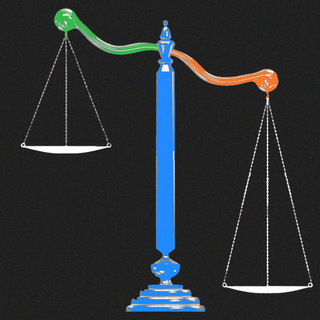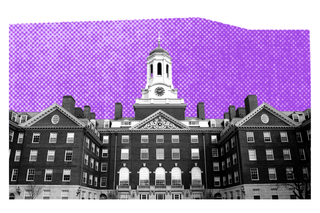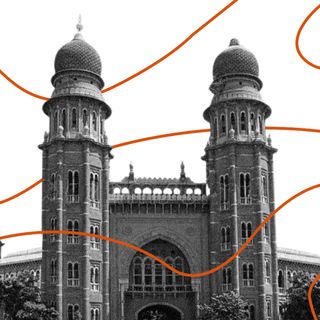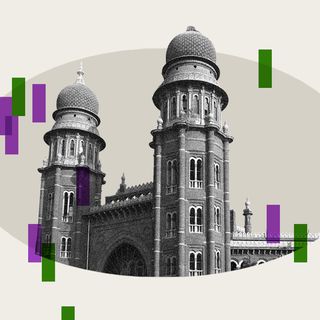
Harvard University Recognizes Caste‑Based Discrimination, Includes Caste Under ‘Protected’ Category
Harvard has become the first Ivy League University to recognize how casteism impacts work and academic culture among the Indian population.

By including “caste” among protections for students and workers on its campus, Harvard University in the U.S. has recognized how casteism impacts work and academic culture among the Indian population. In doing so, it has become the first Ivy League University — which includes eight private research universities — to acknowledge caste-based discrimination.
“The student union had been already negotiating with the administration over several issues, but the issue of caste-based discrimination was raised in March this year,” Aparna Gopalan, 26, an anthropology student at Harvard, who was a member of the committee working to get the caste provision in place, told The Print.
However, authorities at the university refused to believe caste-based discrimination exists. “At one point, they asked, ‘Why isn’t caste just protected under nationality?’ and I was flabbergasted. We were operating on a very basic level,” Gopalan told NBC News. It was only after Equality Labs, an anti-caste civil rights organization in the U.S., made a presentation on the prevalence of the social evil in America, that they began to acknowledge the gravity of the matter.
“The U.S. has a class problem. It has a race problem. And it may just have a caste problem, too,” Subramanian Shankar, a professor of English at the University of Hawaii had written in The Conversation in 2018. But the problem isn’t just restricted to the U.S. With Indians moving abroad, it has begun spilling over everywhere. Speaking to The Diplomat in 2017, an individual named Vijay Begraj narrated the incident of being told by a “higher caste” colleague that he was fortunate to be working at a law firm when his caste sealed his occupational fate as that of a “cleaner.”
Related on The Swaddle:
Casteism Still Thrives in Elite Schools in India. What Would Anti‑Caste Education Look Like?
“This contract was a hard-won victory, which resulted after a three-day strike, a second strike threat, and eight months of negotiation… Driven in partnership with caste-oppressed community members, this win is part of a larger national movement for caste equity that aims to protect caste-oppressed students, workers, and communities across the country,” states a press release by Equality Labs.
Now, after almost nine months of discussion, the university finally ratified a four-year contract adding “caste” as a “protected category” for all graduate and undergraduate student workers. The bias, however, has persisted, and perhaps, even thrived for many, many years — even within Harvard’s campus.
“From derogatory comments about the intellect of oppressed caste students, to proudly narrating their activism against affirmative action in India prior to their admission into Harvard, to a complete cultural monopoly of south Asian/India celebrations the deep sense of alienation, humiliation, and social exclusion I experienced made me constantly vigilant and worried about the consequences of being outed as a Dalit in Harvard’s South Asian circles,” Raj Muthu, an alumnus of Harvard University, said.
While Harvard may be the first Ivy League university in the U.S. to formally recognize caste-based discrimination, it is certainly not the first educational institution there to do so. The University of California, Davis; Colby College, Maine; and Brandeis University, Massachusetts are already leading the way.
However, a name as renowned as Harvard recognizing it, might make the battle against caste-based oppression easier in a handful of ways, Indian students hope.
Related on The Swaddle:
Making Indian Legal Education More Inclusive Is Key to Building a More Equitable Judicial System
“Sometimes this discrimination comes in the most obscure forms,” an Indian student studying at a management institute in the U.S., who chose to remain anonymous, said. “In the past, caste-based discrimination would often be equated with racial discrimination… With a clear definition of caste and how it manifests, so many Indian and Pakistani students stand to benefit from it… This move by Harvard has set a precedent for all higher education institutions in the U.S.,” they added.
Moreover, an institute of Harvard’s repute recognizing casteism might also force premier institutes here in India — like the IITs, the IIMs, and the NLUs, where caste-based discrimination is rampant — to confront it within their campuses. Especially so, since Ivy League colleges like Harvard are places many Indian students, also from these premier institutions, aspire to get into.
Caste bias appears to be prominent in workplaces in the U.S. too — especially in the tech sector where “high-profile tech CEOs and board members, such as Microsoft CEO Satya Nadella and Amazon board member Indra Nooyi… [are Indian but] members of the highest caste,” as The Washington Post reported last year.
Besides being an important precedent, Gopalan believes Harvard’s move will also lend greater credence to a very real social problem Indians face — both in the country and abroad. “South Asians growing up in the U.S. practice caste. So, when employees raise the issue of such discrimination in their workplaces, they will be able to show that one of the finest institutes in their country also recognizes caste as an issue and has provision[s] against such discrimination, she noted.
Devrupa Rakshit is an Associate Editor at The Swaddle. She is a lawyer by education, a poet by accident, a painter by shaukh, and autistic by birth. You can find her on Instagram @devruparakshit.
Related


Set Up Common Burial Grounds Without Caste Segregation: Madras HC to Govt
